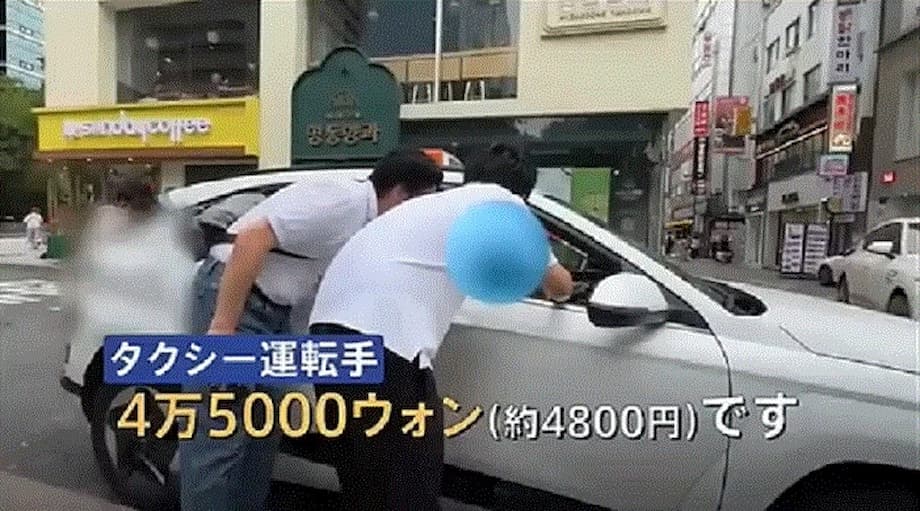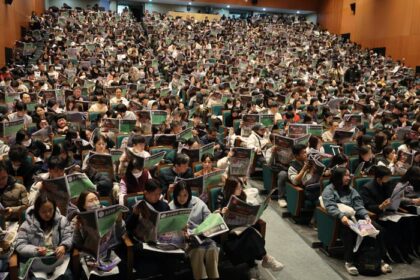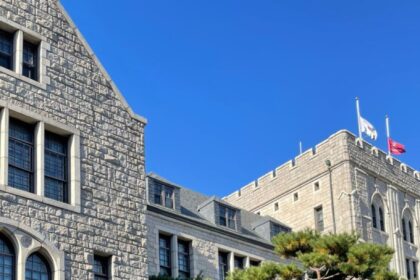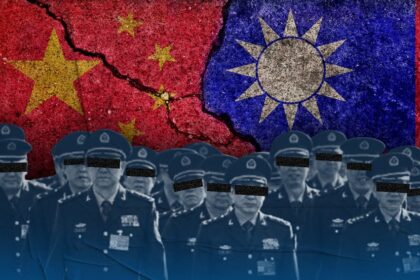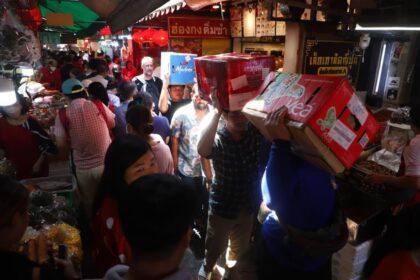A viral sting video puts Seoul taxis under scrutiny
A hidden camera report by Japanese broadcaster TBS showed two reporters posing as tourists taking a taxi from Myeongdong to Hongdae, a journey of about 10 kilometers in central Seoul. The driver switched off the meter before departure, cited heavy traffic, and set a flat price of 45,000 won. At the end of the ride he suggested a cash discount to 40,000 won, refused to issue a receipt, and tried to exchange contact details. The video, posted on TBS News Dig’s YouTube channel, spread quickly, drawing sharp criticism in South Korea and abroad.
City officials moved quickly. The Seoul Metropolitan Government had already launched a 100 day crackdown on unfair taxi practices in early August. Enforcement teams identified the driver and imposed a fine. The city did not disclose the amount, but regulations set a fine of 200,000 won for a first offense. A second offense carries a 400,000 won fine and a 30 day suspension. A third offense triggers a 600,000 won fine and license cancellation. The case became a flashpoint because the standard meter fare for Myeongdong to Hongdae is about 12,000 won in normal conditions, so the demanded fare was nearly four times the typical cost.
The footage also captured a pitch to steer the visitors toward nightlife venues, which raised further concerns about solicitation and attempts to profit from tourists who might not know local norms. Online reaction in Korea was swift, with many calling for strong penalties and tighter oversight. The moment resonated because complaints by visitors about taxi overcharging, refusal to use meters, and ride refusals have persisted despite repeated enforcement drives in recent years.
What happened on the Myeongdong to Hongdae ride
According to the TBS News Dig video, the driver proposed a fixed price before the car moved, immediately turned off the meter, and highlighted heavy traffic as justification. Once in Hongdae, the driver asked for 45,000 won, offered a lower price if paid in cash, and refused a receipt when the reporters paid by card. He then suggested he could introduce them to nightlife spots. After the journalists identified themselves and challenged the fare, he claimed he had lost time earlier because a previous reservation had been canceled at Myeongdong.
In the clip, the driver also tried to sell an additional outing to the visitors. The pitch raised eyebrows because it seemed to target tourists who might not be familiar with local prices or customs for entertainment venues.
The driver told the reporters: “I can take you to a well known casino here for 10,000 yen per person.”
The video triggered strong reactions from Korean viewers over the damage to the country’s image and the effect on tourists at popular sites such as Myeongdong and Hongdae. Many called for a firm response to deter repeat behavior.
As one Korean online user wrote: “Please revoke his taxi license.” Another added: “This hurts Korea’s global standing.”
How the fare should have been calculated
Seoul uses a regulated meter system. The base fare for a standard taxi is 4,800 won for the first 1.6 kilometers, with an extra 100 won added for roughly every 132 meters. Night and late night periods apply higher base fares and surcharges depending on time. On a typical day, a Myeongdong to Hongdae ride, which is around 10 kilometers, is commonly about 12,000 won. Traffic may raise the price, yet the meter must remain on so any extension in travel time is reflected transparently. Turning off the meter and setting a flat price well above the expected fare violates city rules.
The rules, penalties, and the 100 day crackdown
Seoul has been trying to curb predatory taxi behavior at airports and tourist hubs for years. Regular inspections began in 2015 and have included both plainclothes monitoring and targeted enforcement around hotspots. This summer, the city launched a 100 day special operation focused on illegal activity such as overcharging, demanding tips, non use of meters, and refusing short rides. The initiative concentrates resources at Incheon and Gimpo airports and at busy districts like Myeongdong, Hongdae, Itaewon, and Gangnam.
Penalties escalate for repeat offenses. City regulations set fines at 200,000 won for a first violation, 400,000 won and a 30 day suspension for a second, and 600,000 won with license cancellation for a third. In the first half of the year, authorities identified 139 cases of overcharging at airports near Seoul and 109 cases involving drivers who refused short rides to foreign visitors. New measures include more enforcement personnel in the field, expanded use of QR code surveys that feed directly into the city’s complaint system, and clearer labeling on taxi receipts to support audits.
What enforcement looks like on the ground
Seoul maintains a dedicated taxi enforcement team, including 55 multilingual officers who work at airports and in major tourist zones. Patrols typically run six days a week from mid afternoon to late night. In 2024, officers conducted more than 7,400 interviews with foreign visitors and confirmed 345 violations. City staff use video evidence, receipt data, and tips submitted through a QR system to trace vehicles and verify claims. In this case, officials said the driver in the TBS report was located during the heightened inspections and fined.
A wider pattern of complaints from visitors
Taxi issues are one part of a broader complaint pattern reported by foreign travelers in South Korea. The Korea Tourism Organization says that taxi related grievances made up close to 19 percent of all complaints in 2024, including cases of meter non use, inflated prices, and unnecessary detours. A separate tally recorded 1,543 complaints from foreign tourists across sectors last year, up 71 percent from 2023. Complaints ranged from shopping disputes and unclear pricing to accommodation and restaurant issues. The increase in independent travel has left more visitors arranging transport, lodging, and shopping on their own, which can expose them to unclear price displays or aggressive sales tactics.
There have been egregious taxi cases outside the capital as well. On Jeju Island, a driver who charged a Chinese tourist 200,000 won for a ride that should have cost around 23,000 won was ordered to refund the overcharge. The combination of surging arrivals and uneven service standards has made transportation reliability a recurring concern. Language barriers and unfamiliarity with meter rules add to the challenge for short term visitors.
How visitors can protect themselves in Seoul taxis
Most Seoul taxi rides are routine, meter based, and fairly priced. Still, a few simple steps can reduce risk and help document problems when they arise. Smartphone ride apps are common in Korea, and standard taxis provide receipts on request. The more a traveler can anchor a ride to a known fare estimate and leave a paper trail, the harder it is for a bad actor to inflate a price.
- Check that the meter is on before the car moves and stays on for the full ride. If the driver proposes a flat price that looks high, decline and wait for another taxi.
- Ask for a receipt at the end. Receipts show distance, time, fare breakdown, and vehicle identification. They are useful if you need to report an issue.
- Use a trusted ride hailing app such as Kakao T for transparent route tracking and fare estimates. The app also shows the driver and vehicle details.
- Know the basics of fares. In Seoul the base fare is 4,800 won for 1.6 kilometers and the fare increases in small increments with distance and time. Night periods carry higher rates.
- Note the license plate or taxi number if anything seems off. A quick photo can help later.
- If a driver refuses a short ride, politely end the interaction and look for another vehicle. Short rides are allowed and refusals can be reported.
- Avoid cash if you suspect a problem. Paying by card creates a record and helps with refunds during investigations.
How to report a problem in Seoul
Seoul has set up an easy reporting tool for foreign visitors. At Incheon and Gimpo airports, travelers can pick up a business card sized flyer with a QR code that links to a short survey in English, Chinese, or Japanese. By scanning the code and submitting details about the incident, visitors feed information directly into the city’s enforcement system, which can verify vehicle information and issue fines or administrative penalties after review. The city plans to expand distribution of these cards to hotels and arrival areas.
Enforcement teams also conduct on site interviews at airports and near major attractions. Even if staff cannot interview a visitor at the scene, the QR system makes it possible to submit information later, including time and place, a receipt image, or a photo of the vehicle. Authorities say the data has improved the speed and quality of follow up, with more confirmed violations tied to specific cars and drivers.
Stakes for a tourism surge
Tourism to South Korea is climbing. Nearly 7.21 million foreign visitors arrived by the end of May this year, a double digit increase from the year before, and the government expects arrivals to approach 20 million for the full year. The capital’s shopping districts and nightlife draw large numbers from Japan, China, Taiwan, and the United States. That momentum is good for local businesses, yet it also heightens the importance of reliable transport from the airport to hotels and between attractions.
Seoul officials frame the 100 day operation as part of a longer campaign to modernize the taxi sector and raise service standards. Besides fines and suspensions for violators, the city is expanding the use of QR reporting and promoting tools that make prices more transparent to visitors. The aim is straightforward: make sure first time travelers get a fair meter ride, understand the fare they paid, and leave with confidence to explore the city. Most drivers serve that goal every day. Removing the small number who do not helps protect the city’s reputation and the vast majority of drivers who follow the rules.
At a Glance
- Japanese reporters posing as tourists were charged 45,000 won for a Myeongdong to Hongdae ride that should cost about 12,000 won.
- The driver turned off the meter, refused a receipt, and pitched a casino outing for an extra fee.
- Seoul located the driver and issued a fine under an active 100 day crackdown on illegal taxi practices.
- Penalties escalate: 200,000 won for a first offense, 400,000 won and a 30 day suspension for a second, and license cancellation after a third.
- By end June, authorities identified 139 overcharging cases and 109 short ride refusals at airports near Seoul.
- Taxi complaints made up close to 19 percent of all grievances to the Korea Tourism Organization in 2024.
- Seoul has deployed multilingual enforcement teams and a QR code survey system at airports to collect reports in multiple languages.
- Visitors can protect themselves by insisting on the meter, using ride apps, requesting receipts, and reporting problems promptly.


